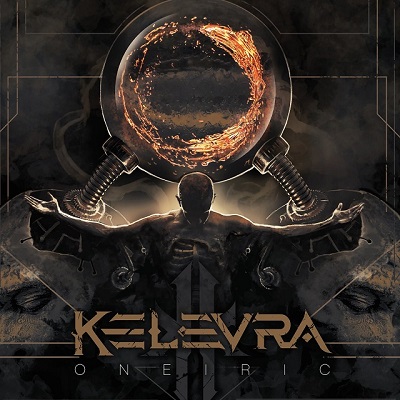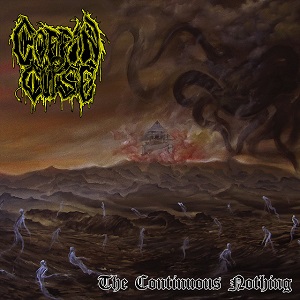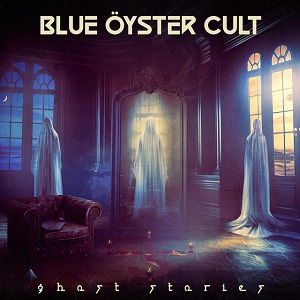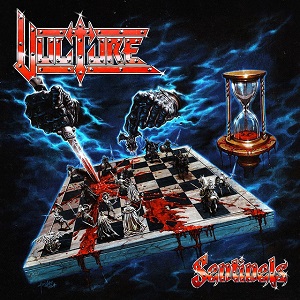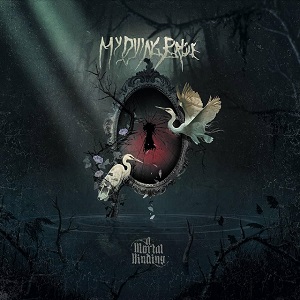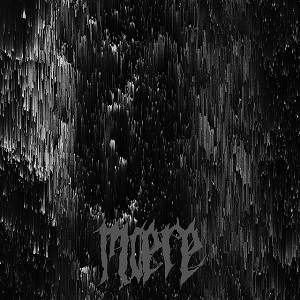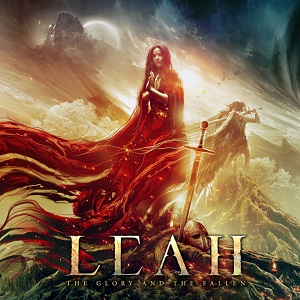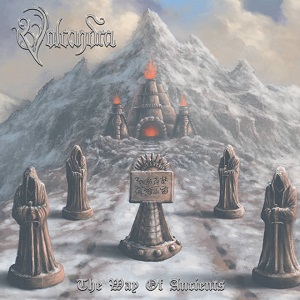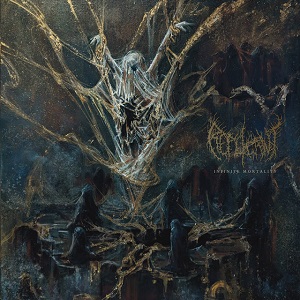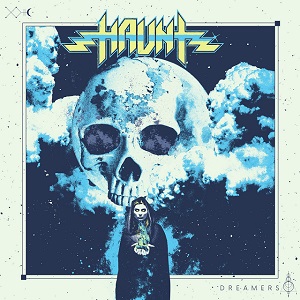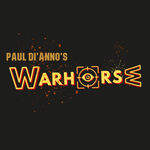ORANGE GOBLIN – Inside The Big Apocalyptic Crescendo
October 1, 2014, 9 years ago
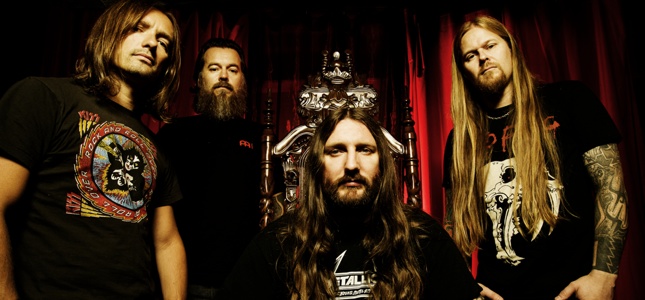
The UK’s Orange Goblin is the perfect mix of Black Sabbath and Motörhead; an ideal marriage of doom and speed. For the release of their eighth studio album, Back From The Abyss, the band chose to once again work with producer Jamie Dodd, who helmed 2012’s A Eulogy For The Damned. Not straying from the beaten path, the same studio, Animal Farm in London, England, was utilized with tremendous results. Given the intended similarities between this most recent recording session, and the previous one only two years ago, vocalist Ben Ward comments, “The only real difference was we knew exactly what we were getting, whereas the first time with A Eulogy For The Damned, it was kind of jumping into the unknown with Jamie in that studio. This time, we knew exactly what the end product would be. I’d say we’re even more delighted with this one than we are with Eulogy. Jamie captured everything that was great about Eulogy, and he’s included a bit of the old Orange Goblin filth in the guitar tones. It’s the best of everything, so we’re really happy with it.”
Even prior to listening to Back From The Abyss for the very first time, as you gaze upon the tracklisting, one title in particular stands out, that being “Ubermensch”. It’s a German word, that directly translated to English means Superman; but not the alter ego of Clark Kent. It’s actually a concept found in the philosophy of Friedrich Nietzsche, which unfortunately was used by Adolf Hitler and the Nazis to describe their idea of a superior Aryan race. “Well, the actual lyrical theme behind the idea is being the best man you can be, whether that’s taken literally or just as a guide to living your life,” says Ben. “I got the idea for the title from a comic book which is based on these futuristic Russian soldiers that were called The Ubermensch. I knew that word had connotations with the Nazis, so I definitely didn’t want to sing about that. I have no interest in that. So that’s why I thought I’d write about being a better man; on the last album we had the song ‘Stand For Something’ which is kind of like a pick me up. It’s supposed to be a song to give you strength and that sort of thing.”

Another song on Back From The Abyss that could have a double entendre, yet it doesn’t, is “Into The Arms Of Morpheus”. There’s a character in The Matrix movies, played by Laurence Fishburne, named Morpheus. However, Ben is referring to the God of Dreams from Greek mythology. “Yes, I like that whole idea of the Greek Gods. I think the theme of sleep and dreams is an interesting topic. It’s always been relevant to this style of music. Sabbath has a lot of songs like ‘Behind The Wall Of Sleep’, and there’s a band (from California) called Sleep. It’s something we all wonder about… I’m sure you’ve had weird dreams where you don’t know whether it’s reality or not. A lot of people suffer with insomnia; it can lead to madness and that sort of thing. It’s a very interesting concept, it was just sort of a play on that really – how we can rely on things like valium to aid us to reach states of euphoria.”
When it comes to the writing of lyrics, Ben readily admits, “I do pour over them for a long time, especially with this album because the circumstances around recording were a lot different this time. I was away. I was out working as a tour manager for a band (from Texas) called Scorpion Child, which was something I’d committed to do long ago. I didn’t want to let them down, so leading up to the recording, the band (Orange Goblin) are in the studio writing the new material without me being there. So I couldn’t hear what they were doing, and they had no idea what I was going to come up with. It wasn’t until a few days before the recording started that I heard the music in its entirety for the first time. I just started coming up with ideas of what I was going to do. Even into the recording sessions, I still didn’t have lyrics for a lot of the songs. But because we recorded over the space of two months, we could go away during the week and listen to stuff, it gave me a chance to sit at home and come up with ideas. They weren’t rushed at all, but it was all very last minute. I spent a lot of time pulling my hair out! I’d write a whole song and then scribble it all out – that sounds shit, I can’t use that. I’d beat myself up over it until I was finally satisfied with everything. I really appreciate that people seem to dig the lyrics and the band; I like the idea that people are taking their own spin on it. My lyrics are open to interpretation, so someone might find something in there that I didn’t necessarily mean; I’m all for that, that’s cool.”
Without getting too far sidetracked from the new Orange Goblin album, Ben shares his thoughts on being a tour manager. “It was the first time I’d done it for another band; I was driving them as well. I can’t say it was a wholly enjoyable experience. We had loads of issues with vans breaking down, equipment blowing up, the bass player left half way through the tour… it was a real baptism of fire. It’s not something I want to jump back into in any hurry.”

Returning to Back From The Abyss, pretty much everyone is familiar with Godzilla, yet “Bloodzilla” is a song people would likely take their own interpretation from. “We were sitting in a studio and Joe (Hoare) was playing the guitar parts for that; it didn’t have a name or any sort of lyrical theme. It was around the time that new version of Godzilla had come out in the cinema; it was everywhere, everybody was talking about it. Something just clicked in my head about Bloodzilla – what a cool idea! A huge kind of vampire monster that rises from the sea to destroy cities; it was as simple as that, it’s nonsense. I don’t even think the lyrics are related at all to the concept. It’s just a bit of silliness really.” In the animated television series The Simpsons, back in 2001, during episode 259 titled Worst Episode Ever, there was an appearance of a comic book called Bloodzilla. “Oh wow, I’ll have to try and look that up. I am a bit of a fan of The Simpsons; I don’t watch it religiously, but when I do get ‘round to watching it, it always cracks me up.”
The final track on Back From The Abyss, “The Shadow Over Innsmouth” is an instrumental. “That was always going to be an instrumental. It was written as a big apocalyptic crescendo to the album. When we do instrumentals like that, we leave it to Joe (Hoare, guitarist) to name his pieces. He named ‘Titan’ on this record. He couldn’t come up with anything for that. He said, ‘what does it make you think of?’ The fact that it’s sort of brooding and doomy made me think of The Shadow Over Innsmouth – that mysterious half town that’s hiding a dark secret.” Ben is of course referring to the 1936 novella by H.P. Lovecraft. “I think it fit the music perfectly.” Are the members of Orange Goblin big Lovecraft fans? “I think Chris (Turner, drummer) is into it. I’m not sure if Martin (Millard, bassist) and Joe have read that much of it. But me and Chris are certainly fans. That was a big talking point on the last album with the first song ‘Red Tide Rising’; it was based on The Call Of Cthulhu. It’s something we continued on to this album as well.” Lovecraft’s influence in heavy metal is ever-present; Metallica has an instrumental song on their Ride The Lightning album named “The Call Of Ktulu”. “Yeah, and ‘The Thing That Should Not Be’ off Master Of Puppets is Lovecraft influenced as well. It’s always been there. You look at a band like Electric Wizard; they’ve always relied on Lovecraft. The cover of Live After Death by Iron Maiden has the ‘Strange Aeons Even Death May Die’ Lovecraft quote on there. His influence on not only heavy metal, but horror and horror literature is unfathomable. It’s incredible, the guy’s a genius.”

